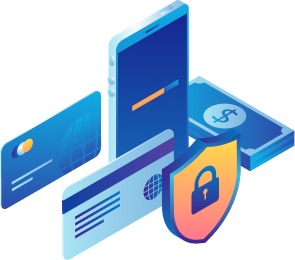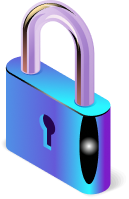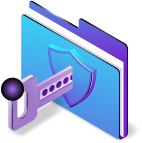security and anti-fraud
|
Security and anti-fraud
Every day, we are working hard to protect your money, ensure the privacy of personal data, and ensure the security of bank transactions. Currently, malefactors use various fraudulent schemes to cheat users and steal large sums of money from their cards. That is why we need to discover, notify and prevent an attempt at fraud. |
 |
Stay vigilant, and don’t share any information about bank data!
|
How to secure your card?
For you to have the most secure experience when you pay with your card at the merchants, we recommend you observe some basic rules:
|
 |
 |
Security of card transactions on the Internet
The Internet has become very attractive to cybercriminals, who use ingenious methods to obtain money or confidential banking information from potential victims.
Be vigilant when someone asks you for the security features of your card: card number, expiration date, and CVV2/CVC2, the unique code received by SMS to authorize each Payment. Transactions are not considered fraudulent, completed with all the card security features, and authorized by the unique code received by SMS. Only your card number, last name, and first name are enough to receive a money transfer on your bank card. That's all! |
|
 |
What is social engineering? Social engineering includes many forms of psychological manipulation by telephone or social networks on which attackers use them on the victims. In our case, the aim is to make the victims, MAIB customers act against their reason and share confidential information. Be careful with whom you are talking to and what information you are providing to the other party, especially if it is about data that may make you vulnerable later. What social engineering provides over the phone (Vishing) It's a fraudulent method by which you can be contacted by phone or by messaging services (Viber, Telegram, WhatsApp) by malefactors. They claim to be an maib employee and ask you for confidential information under various pretexts. For example, to confirm a money transfer banking operation. Recommendations:
|
|
What is phishing or method of "identity theft"
Phishing is one of the most common cyber attacks. It is used to obtain personal information, such as bank account data or how to access it online. Typically, this type of attack appears as an email message that claims to be from the bank and asks you to click on a link or attachment. This link directs you to a false site, which reproduces the official page of maib very well. This captures confidential banking and personal information such as first and last names, addresses, personal IDNP code, card number, access passwords, etc. Recommendations:
|
 |
|
Fraud in the form of offers or fictitious bonuses received through social media
|
|
What is smishing Smishing (word combination between SMS and phishing) is trying to mislead you by text messages to obtain personal, banking, or security data. As a rule, you receive messages with the following content: "Congratulations! You won the "X" prize. To collect the prize please distribute this message to 5 friends and fill in your personal data form/card data (card number, expiry date, CVV)." Recommendations:
|
 |
 |
What does COVID 19 Scam require Adapted to the current context, malefactors have rapidly developed the COVID 19 thematic scam for unwarranted benefits. Potential victims are contacted by telephone or receive messages via social media (Facebook, Odnoklasniki, Vkontakte, etc.) from friends or relatives whose accounts have been broken. Under the pretext of providing treatment aid, they are asked for a certain amount of money or personal bank data to make a lump-sum transfer. Recommendations:
|
|
if you have, however, become the victim of fraud by providing confidential personal and banking data, follow these steps:
|


 maibank
maibank
 maib business app
maib business app
 online loans – legal entities
online loans – legal entities
 internet banking - individuals
internet banking - individuals
 new internet banking - maib business
new internet banking - maib business
 internet Banking - BankFlex
internet Banking - BankFlex




